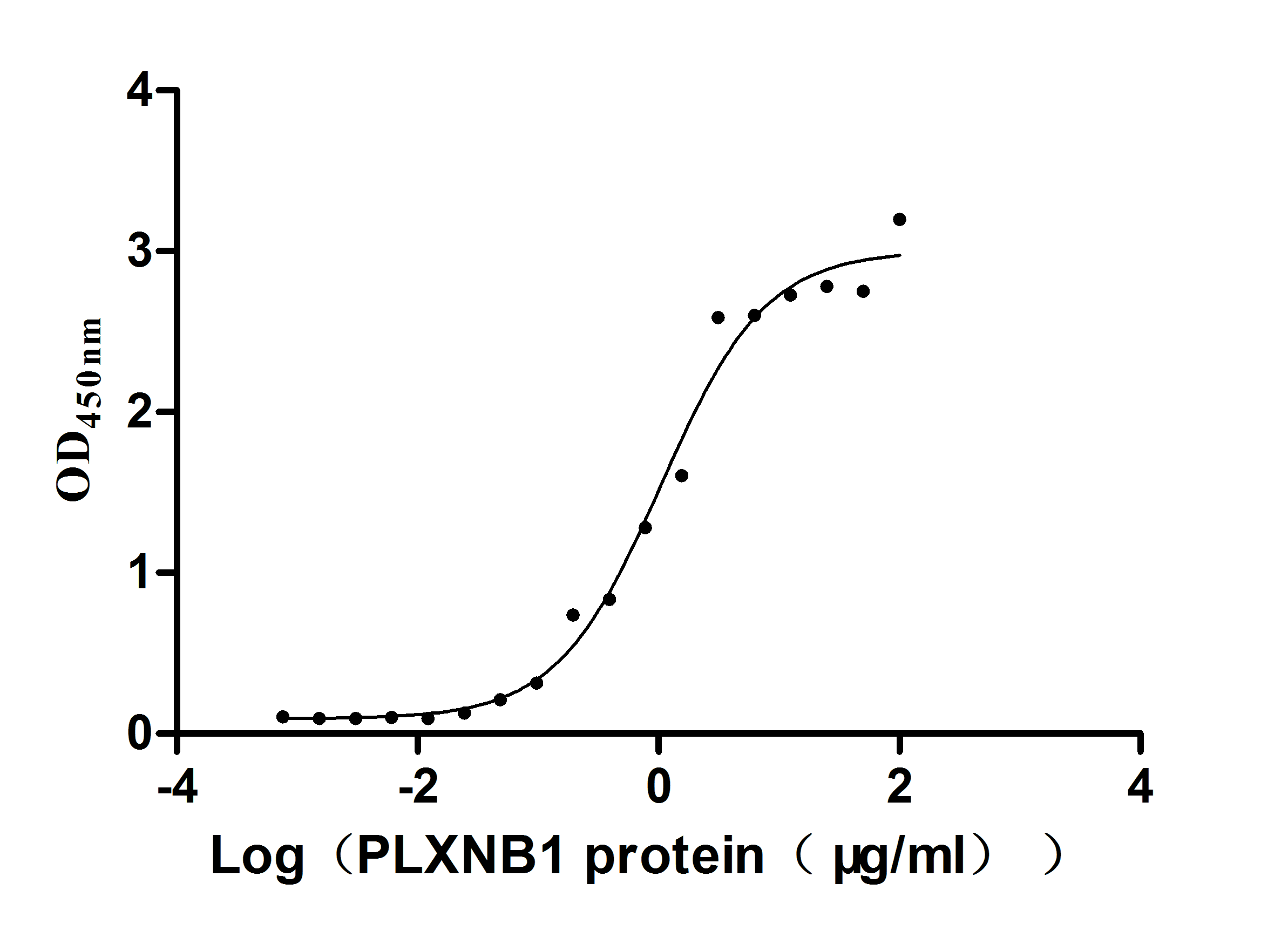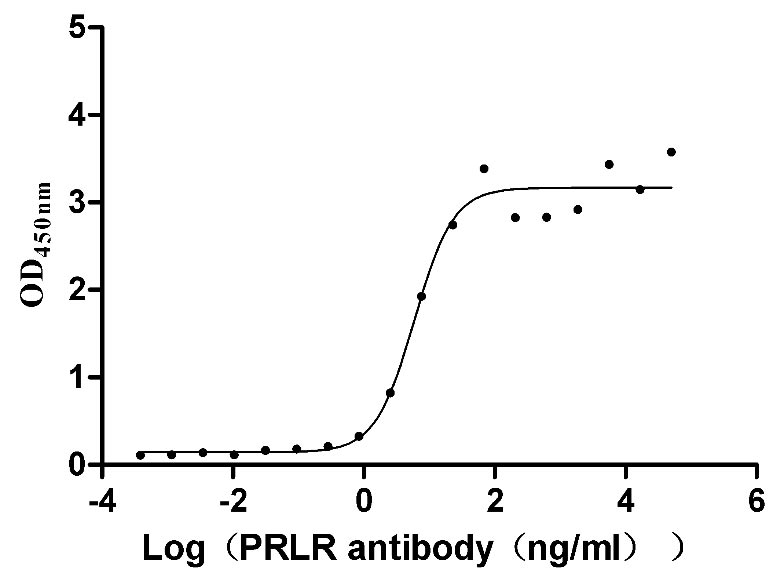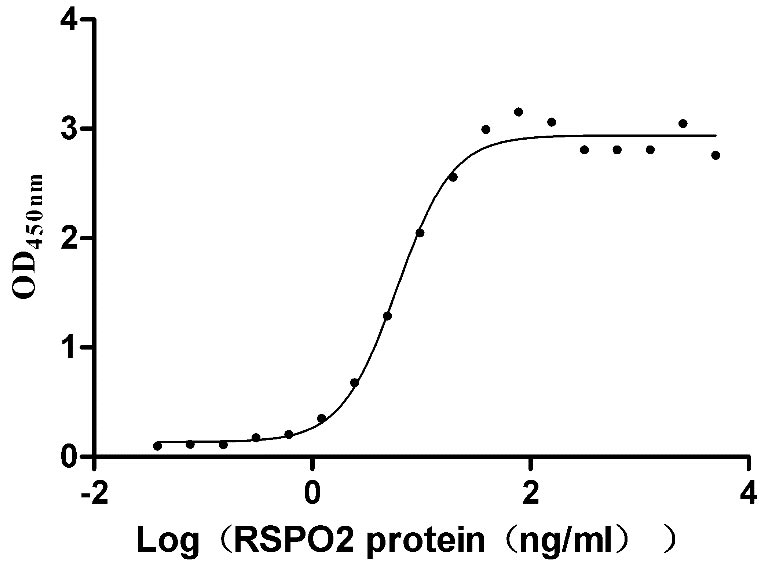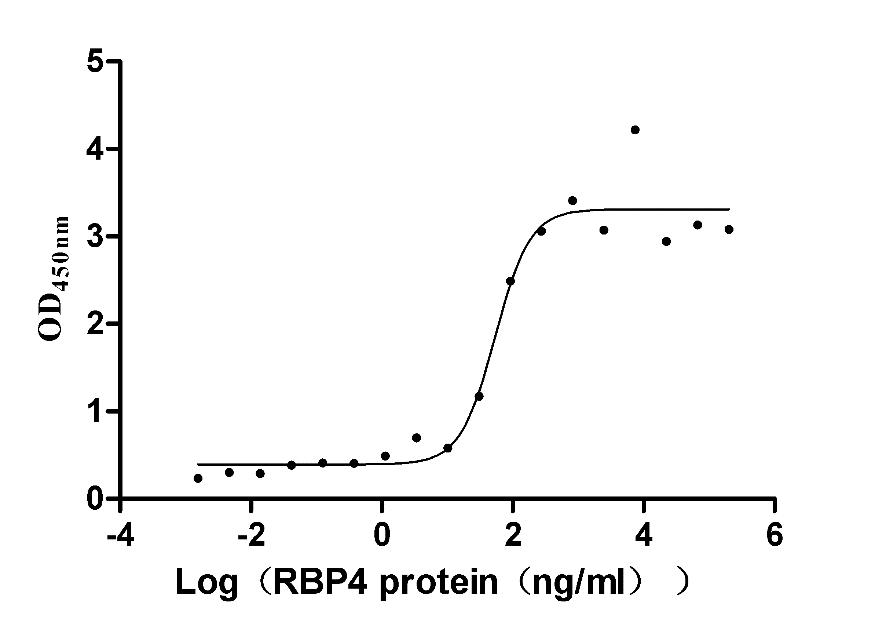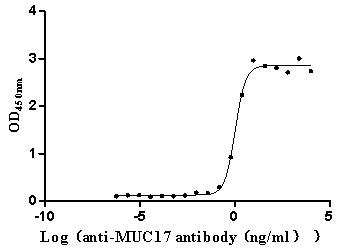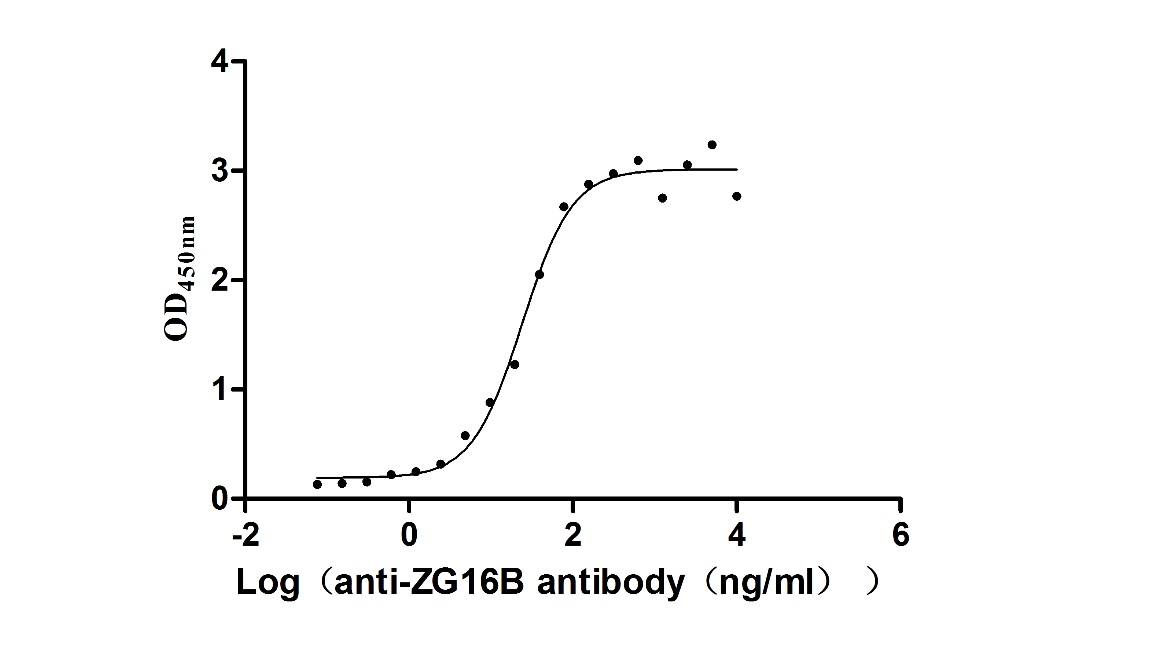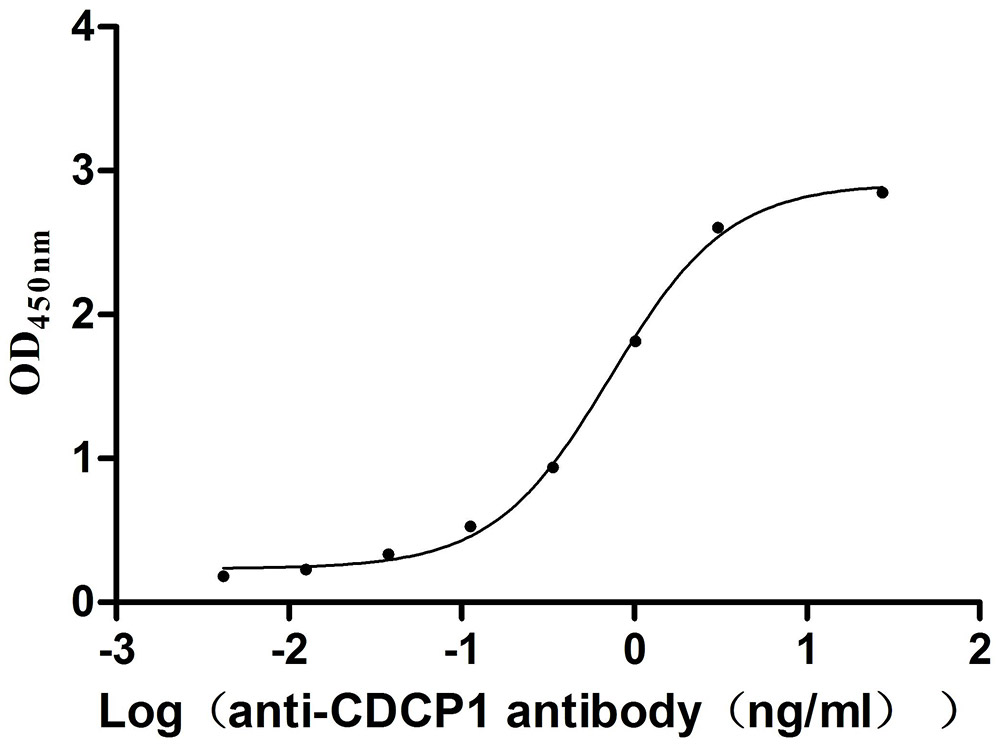Recombinant Human Charged multivesicular body protein 2b (CHMP2B)
-
货号:CSB-EP891990HU
-
规格:¥1344
-
图片:
-
其他:
产品详情
-
纯度:Greater than 90% as determined by SDS-PAGE.
-
基因名:
-
Uniprot No.:
-
别名:ALS17; Charged multivesicular body protein 2b; CHM2B_HUMAN; CHMP family; member 2B; CHMP2.5; CHMP2b; Chromatin modifying protein 2b; Chromatin-modifying protein 2b; DMT1; hVps2-2; Vacuolar protein sorting 2; yeast; homolog of; B; Vacuolar protein sorting 2-2; Vacuolar protein sorting-associated protein 2-2; VPS2 homolog B; Vps2-2; VPS2B
-
种属:Homo sapiens (Human)
-
蛋白长度:Full Length of Mature Protein
-
来源:E.coli
-
分子量:50.8kDa
-
表达区域:2-213aa
-
氨基酸序列ASLFKKKTVDDVIKEQNRELRGTQRAIIRDRAALEKQEKQLELEIKKMAKIGNKEACKVLAKQLVHLRKQKTRTFAVSSKVTSMSTQTKVMNSQMKMAGAMSTTAKTMQAVNKKMDPQKTLQTMQNFQKENMKMEMTEEMINDTLDDIFDGSDDEEESQDIVNQVLDEIGIEISGKMAKAPSAARSLPSASTSKATISDEEIERQLKALGVD
Note: The complete sequence including tag sequence, target protein sequence and linker sequence could be provided upon request. -
蛋白标签:N-terminal GST-tagged
-
产品提供形式:Liquid or Lyophilized powder
Note: We will preferentially ship the format that we have in stock, however, if you have any special requirement for the format, please remark your requirement when placing the order, we will prepare according to your demand. -
缓冲液:Tris-based buffer,50% glycerol
-
储存条件:Store at -20°C/-80°C upon receipt, aliquoting is necessary for mutiple use. Avoid repeated freeze-thaw cycles.
-
保质期:The shelf life is related to many factors, storage state, buffer ingredients, storage temperature and the stability of the protein itself.
Generally, the shelf life of liquid form is 6 months at -20°C/-80°C. The shelf life of lyophilized form is 12 months at -20°C/-80°C. -
货期:Basically, we can dispatch the products out in 1-3 working days after receiving your orders. Delivery time may differ from different purchasing way or location, please kindly consult your local distributors for specific delivery time.Note: All of our proteins are default shipped with normal blue ice packs, if you request to ship with dry ice, please communicate with us in advance and extra fees will be charged.
-
注意事项:Repeated freezing and thawing is not recommended. Store working aliquots at 4°C for up to one week.
-
Datasheet & COA:Please contact us to get it.
相关产品
靶点详情
-
功能:Probable core component of the endosomal sorting required for transport complex III (ESCRT-III) which is involved in multivesicular bodies (MVBs) formation and sorting of endosomal cargo proteins into MVBs. MVBs contain intraluminal vesicles (ILVs) that are generated by invagination and scission from the limiting membrane of the endosome and mostly are delivered to lysosomes enabling degradation of membrane proteins, such as stimulated growth factor receptors, lysosomal enzymes and lipids. The MVB pathway appears to require the sequential function of ESCRT-O, -I,-II and -III complexes. ESCRT-III proteins mostly dissociate from the invaginating membrane before the ILV is released. The ESCRT machinery also functions in topologically equivalent membrane fission events, such as the terminal stages of cytokinesis and the budding of enveloped viruses (HIV-1 and other lentiviruses). ESCRT-III proteins are believed to mediate the necessary vesicle extrusion and/or membrane fission activities, possibly in conjunction with the AAA ATPase VPS4.
-
基因功能参考文献:
- We directly link TDP-43 loss of function toxicity to two genes with rare amyotrophic lateral sclerosis and frontotemporal lobar degeneration-causing mutations, CHMP2B and ErbB4 PMID: 27621269
- these data indicate that the neuronal expression of human CHMP2B(intron5) in areas involved in motor and cognitive functions induces progressive motor alterations associated with dementia symptoms and with histopathological hallmarks reminiscent of both amyotrophic lateral sclerosis and frontotemporal dementia. PMID: 27329763
- Endogenous TMEM106B was partly sequestered in CHMP2B-positive structures. SNP T185 was more associated with CHMP2B than SNP S185, and it enhanced neurotoxicity caused by CHMP2B(Intron5) compared to S185-expressing cells. PMID: 26651479
- Study showed that mutant CHMP2B causes the pathological accumulation of endolysosomal components early in the frontotemporal dementia disease course PMID: 26358247
- Protein kinase CK2 alpha is involved in the phosphorylation of the ESCRT-III subunits CHMP3 and CHMP2B, as well as of VPS4B/SKD1, an ATPase that mediates ESCRT-III disassembly. PMID: 24440309
- Data indicate that knockdown of syntaxin 13 (syx13) further increased the cellular toxicity caused by muaant CHMP2B (CHMP2BIntron5) expression. PMID: 24095276
- CHMP2B immunoreactivity was increased in the dorsal motor nucleus of the vagus nerve in Parkinson's disease and incidental Lewy body disease brains PMID: 22989140
- These findings suggest that endosomal and autophagic pathway is associated with degradation or formation of alpha-synuclein aggregates in alpha-synucleinopathy. PMID: 22947304
- Subjects with CHMP2B mutation show cognitive changes dominated by executive dysfunctions, years before they fulfil diagnostic criteria of FTD. PMID: 23142962
- Direct link between disease-causing mutations and the cellular phenotype in cells originating from CHMP2B mutation patients with frontotemporal dementia. PMID: 22786763
- This study provided a better understanding of the cellular pathogenesis of neurodegenerative diseases associated with various missense mutations of CHMP2B as well as endocytic defects. PMID: 22521643
- CHMP2B polymerization scaffolds membranes in vivo represents a first step toward demonstrating its structural role during outward membrane deformation PMID: 21926173
- recent advances in our understanding of the molecular basis of CHMP2B mutations indicate that the mechanisms involved may be broadly relevant to neurodegenerative processes.[review] PMID: 21222599
- A novel heterozygous variant p.Ser194Leu (c.581C>T) is found in exon 6 of the CHMP2B gene in one male patient with pure frontotemporal lobar degeneration. PMID: 20625756
- The results of this study confirmed that mutations in CHMP2B are not a common cause of frontotemporal lobar degeneration. PMID: 20412296
- CHMP2B is required for spine growth. Taken together, these results demonstrate that a mutant ESCRT-III subunit linked to a human neurodegenerative disease can disrupt the normal pattern of spine development. PMID: 20699355
- analysis of CHMP2B mutations in lower motor neuron predominant amyotrophic lateral sclerosis PMID: 20352044
- The fusion of endosomes with lysosomes is required for neuronal function suggesting a pathogenic mechanism for frontotemporal dementia caused by CHMP2B mutations. PMID: 20223751
- CHMP2B can be used as a reliable marker for GVD in neurons of the AD hippocampus. PMID: 20420883
- there were no significant differences in the frequencies of the IVS4 + 44C/A, 1303C/A, 1254T/C and IVS15Ex16-16C/G polymorphism haplotypes in the patient cohorts (regardless of the degree of hepatic iron deposition) compared to the control cohort PMID: 15223008
- identify a mutation in CHMP2B, encoding a component of the endosomal ESCRTIII complex, and show that it results in aberrant mRNA splicing in tissue samples from affected members of family with autosomal dominant frontotermporal dementia PMID: 16041373
- Mutations in CHMP2B are a rare cause of familial FTLD and may be specific to the Danish pedigree. PMID: 16431024
- This studyidentified mutations (Q206H; I29V) in two patients with non-SOD1 ALS. PMID: 16807408
- CHMP2B mutations are not a cause of dementia in Dutch patients with familial and sporadic frontotemporal dementia. PMID: 16941655
- CHMP2B can be excluded as a susceptibility gene conferring risk to sporadic forms of frontotemporal dementia. PMID: 16979267
- These data suggest that C-truncating mutations in CHMP2B might underlie the pathogenic mechanism in frontotemporal lobar degeneration. PMID: 17956895
- data indicates that CHMP2B mutations are a rare cause of ALS, and no mutations were found in classic ALS phenotypes. PMID: 18270236
- These data suggest that SgIII, DMT-1 and HNP-1 are implicated in cell-mediated LDL oxidation. PMID: 19150442
- The specificity of DMT1 inhibition by 4 molecules in a cell line is reported. PMID: 19179627
- finding suggests that mutations in CHMP2B have widespread effects throughout the brain, leading to a neuro-anatomical signature distinct from other diseases in the frontotemporal lobar degeneration spectrum PMID: 19202337
- Divalent metal transporter 1 (DMT1) regulation by Ndfip1 prevents metal toxicity in human neurons. PMID: 19706893
显示更多
收起更多
-
相关疾病:Frontotemporal dementia, chromosome 3-linked (FTD3); Amyotrophic lateral sclerosis 17 (ALS17)
-
亚细胞定位:Cytoplasm, cytosol. Late endosome membrane; Peripheral membrane protein.
-
蛋白家族:SNF7 family
-
组织特异性:Widely expressed. Expressed in brain, heart, skeletal muscle, spleen, kidney, liver, small intestine, pancreas, lung, placenta and leukocytes. In brain, it is expressed in cerebellum, cerebral cortex, medulla, spinal chord, occipital lobe, frontal lobe, t
-
数据库链接:
HGNC: 24537
OMIM: 600795
KEGG: hsa:25978
STRING: 9606.ENSP00000263780
UniGene: Hs.476930
Most popular with customers
-
Recombinant Human Plexin-B1 (PLXNB1), partial (Active)
Express system: Mammalian cell
Species: Homo sapiens (Human)
-
Recombinant Mouse Prolactin receptor (Prlr), partial (Active)
Express system: Mammalian cell
Species: Mus musculus (Mouse)
-
Recombinant Human E3 ubiquitin-protein ligase ZNRF3 (ZNRF3), partial (Active)
Express system: Mammalian cell
Species: Homo sapiens (Human)
-
Recombinant Human Intestinal-type alkaline phosphatase (ALPI) (Active)
Express system: Mammalian cell
Species: Homo sapiens (Human)
-
Recombinant Mouse Retinol-binding protein 4 (Rbp4) (Active)
Express system: Mammalian cell
Species: Mus musculus (Mouse)
-
Recombinant Human Mucin-17 (MUC17), partial (Active)
Express system: Mammalian cell
Species: Homo sapiens (Human)
-
Recombinant Macaca fascicularis zymogen granule protein 16 homolog B (ZG16B) (Active)
Express system: Mammalian cell
Species: Macaca fascicularis (Crab-eating macaque) (Cynomolgus monkey)
-
Recombinant Mouse CUB domain-containing protein 1 (Cdcp1), partial (Active)
Express system: Mammalian cell
Species: Mus musculus (Mouse)



